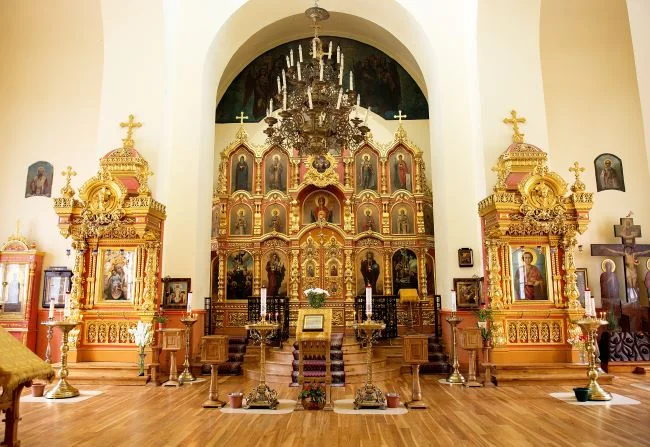To gain insight into Russian Christians, it is essential to delve into their core beliefs and religious practices. Russian Christians encompass a diverse group of individuals with rich traditions and deep-rooted faith.
One of the fundamental aspects of Russian Orthodox Christianity, which is predominant in the country, is the veneration of icons. Icons are considered sacred and are believed to facilitate a connection between the earthly realm and the divine.
Furthermore, Russian Christians place significant importance on participating in traditional liturgical practices such as prayers, sacraments, and services. These rituals hold profound spiritual meaning and serve as a way for believers to strengthen their bond with God.
Another distinctive feature of Russian Christian theology is its emphasis on mysticism and spiritual contemplation. Many Russian Orthodox followers engage in practices aimed at achieving a deeper understanding of God’s presence in their lives through meditation and prayer.
Exploring the five central beliefs and religious practices of Russian Christians.
Exploring the five central beliefs and religious practices of Russian Christians helps provide insight into the rich tapestry of traditions followed by this community.
Russian Christians, like other Christian denominations, deeply value the Holy Trinity—Father, Son, and Holy Spirit—shaping their perception of God and religious practices. In the Russian Orthodox faith, the mystical essence of the Trinity is a profound enigma beyond human understanding, pivotal in theology and daily life. Through art, literature, and music, Russian Christians express Trinity’s beauty and complexity. Iconography in Orthodox churches visually represents this core belief.
The Orthodox Church, which plays a significant role in Russian Christianity, emphasizes the importance of icons in religious devotion. These sacred images serve as windows to the divine and aid believers in connecting with the spiritual realm during prayers and worship services.
Additionally, Russian Christians place great value on the sacraments, viewing them as tangible expressions of God’s grace and presence in their lives. The sacraments, such as baptism and communion, are pivotal moments where believers experience profound spiritual transformation and renewal.
Russian Christian traditions also encompass a deep reverence for saints and martyrs who exemplify faithfulness and dedication to God. Saints serve as inspirational figures whose lives inspire believers to lead virtuous and devout lives following their example.
Furthermore, prayer holds a central place in the spiritual life of Russian Christians, serving as a means of communication with God and a source of strength, comfort, and guidance in times of joy and adversity alike. The practice of prayer is woven into the fabric of daily routines, marking significant moments throughout the day with moments of reflection, gratitude, and supplication.
In essence, delving into the core beliefs and religious practices of Russian Christians unveils a profound spiritual heritage that intertwines centuries-old traditions with unwavering faith and devotion to God.
Conclusion on Russian Christians: Their Beliefs and Practices.
Russian Christians have a rich tapestry of beliefs and practices deeply rooted in their history and cultural heritage. From the majestic onion domes of Orthodox churches to the solemn rituals of liturgical worship, every aspect of their faith reflects a profound sense of tradition and spirituality.
The Orthodox Church, with its intricate iconography and elaborate ceremonies, serves as a central pillar of Russian Christian identity, shaping both individual beliefs and communal practices. Icons are not mere decorations but sacred windows into the divine realm, revered for their ability to connect believers with the heavenly realm and inspire devotion.
The significance of icons in Russian Orthodox worship extends beyond religious symbolism; they are conduits for prayer, contemplation, and spiritual connection, embodying centuries of tradition and faith. The veneration of saints, such as St. Basil or St. Sergius of Radonezh, plays a crucial role in Russian Orthodox spirituality, with believers seeking their intercession in times of need or celebration. Every ritual, whether it be the lighting of candles or the singing of hymns in ancient Slavonic languages, is imbued with layers of meaning that resonate with centuries-old customs and beliefs. The concept of “sobornost,” or spiritual unity within the community, underscores the collective nature of Russian Christian worship, emphasizing harmony and shared faith among believers.
Learn more about this topic >>>
Download the BIBLE COMBO quote app
Android:- https://bit.ly/biblecombo-playstore
iOS:- https://bit.ly/biblecombo-applestore






